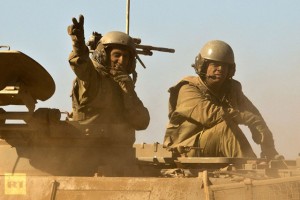 Admiral William Fallon says US-led military op could put Iranian nuclear program�back�several years, notes Israel less capable of strike and may face more difficult task than in Iraq, Syria
Admiral William Fallon says US-led military op could put Iranian nuclear program�back�several years, notes Israel less capable of strike and may face more difficult task than in Iraq, SyriaA former US military commander warned Wednesday that a potential US strike against�Iran�would take weeks and probably only set back the country's nuclear program by several years.
Admiral William Fallon, the former head of US Central Command which covers the Middle East, said that Iran posed concerns for both the United States and�Israel�but voiced hope for a diplomatic solution to the nuclear row.
"If the US were to put a full-fledged strike campaign in there, that would probably take several weeks, it could put this program back for several years," Fallon said at the American Security Project, a research group.
Israel, which has not ruled out military action, has less capability than the United States and would face a more difficult task than in 1981 and 2007 when it secretly bombed nuclear sites in Iraq and�Syria, Fallon said.
Iran's suspected nuclear facilities are not a "pinpoint target" but are instead dispersed and largely underground, he said.
"The bottom line is, it's not going to be a one-time shot. It's not going to be like '81 or even 2007," Fallon said.
Strike as last resort
Fallon resigned as Central Command chief in 2008 and ended a four-decade military career after an article in Esquire magazine portrayed him as critical of then president George W. Bush's stance on Iran.
Fallon joined other former US officials last year in signing a study that said military action should be a last resort on Iran and estimating that military strikes could set back the nuclear program by up to four years.
Other signatories included former senator�Chuck Hagel, recently nominated by President�Barack Obama�to be defense secretary.
But Senator Chuck Schumer, a hawkish supporter of Israel who had initially wavered on supporting Hagel, said Hagel promised him that planning military contingencies on Iran would be his first priority at the Pentagon.
Iran denies Western charges it is developing nuclear weapons, saying its nuclear work is for peaceful purposes.
Experts from the UN International Atomic Energy Agency on Wednesday held talks in Tehran on addressing international concerns over Iran's nuclear program that have triggered US-led economic sanctions.
A US think tank, the Institute for Science and International Security, said Monday that Iran was on track to be able to produce material for at least one nuclear bomb by mid-2014.
By Ynet News
The Iran Project is not responsible for the content of quoted articles.










